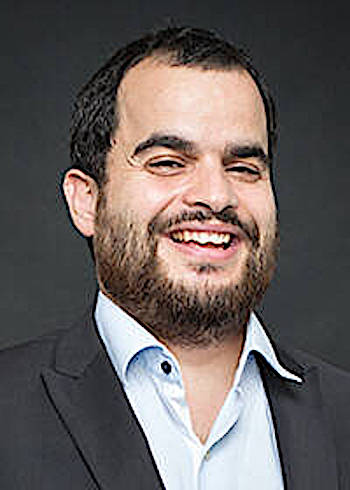
Associate Professor Jeremy Ghez of HEC Paris
Jeremy Ghez
Age: 42
Associate Professor of Economics and International Affairs (Education Track)
How long at HEC Paris: 13 years
Education: PhD, Policy Analysis, Pardee RAND Graduate School; MA, Economics, Paris School of Economics; MSc, Business, HEC Paris.
List of EMBA courses you currently teach:
Business Environment (a core class of the progam)
I knew I wanted to be a business school professor when I recognized the incredible diversity of talent I would engage with on a daily basis—individuals driven to find solutions and eager to challenge conventional business practices
What are you currently researching and what is the most significant discovery you’ve made from it? I am currently working on what I’d call “the Great Divorce” between the United States and China, which refers to the decline of economic interdependence and market integration between these two major powers. Many people tend to associate this situation with deglobalization. I think the Great Divorce may be better understood as economic decoupling though. This implies higher production and logistical costs but does not necessarily signify less trade or interaction between nations. Instead, we might see a shift towards a different type of interaction at the global level.
If I weren’t a business school professor, I’d be a novelist. For sure.
What do you think makes you stand out as a professor? I’m in the business of building bridges that help participants tie the headlines of major publications with their business reality and problems they’re trying to solve. I’m just a guy offering a toolkit. Once participants get that, they feel empowered to apply that toolkit to any global business environment problem they face.
One word that describes my first time teaching: Horrific.
Professor I most admire and why: There are a lot of people I admire in this sector. Thomas Schelling is the one that comes most naturally to mind though. He’s one of the brightest minds I can think of who worked on incredibly complex topics while making them accessible and meaningful for all types of decision-makers.
TEACHING
What do you enjoy most about teaching business students? They’re curious and ready to challenge.
What is most challenging? Well… They’re curious and ready to challenge.
In one word, describe your favorite type of student: Open-minded
LIFE OUTSIDE THE CLASSROOM
What are your hobbies? I’ve discovered Midjourney very recently. I find that generating all types of images to be exceptionally effective method to let go.
How will you spend your summer? Beach, books and kids.
Favorite place(s) to vacation: Too many to list
Favorite book(s): The Strategy of Conflict, by Thomas Schelling
What is currently your favorite movie and/or show and what is it about the film or program that you enjoy so much? It’s not very current but I recently discovered the TV series Big Little Lies. The acting, the story… Wow. There’d be so much to say about human nature, the opportunities and the perils of coordinating your actions and the strengths and weaknesses of social pacts and individual relationships…
What is your favorite type of music or artist(s) and why? Still in the Frank Sinatra (and anything inspired by him) mood…
REFLECTIONS
If I had my way, the business school of the future would have much more multidisciplinary and wide-reaching programs. I cannot envision a global challenge—climate change and artificial intelligence being the most prominent examples—that would not require solutions from enlightened technicians who possess a broad knowledge base across various subjects while also specializing in one particular domain. The business school of the future is going to need to ambitious and demanding with its participants. It will need to urge them to consider the wider political, geopolitical, societal, social, technological, and environmental ramifications of their decisions. Empowering them to challenge the status quo of business-as-usual, which is ripe for disruption, will be crucial for the success of the business school of the future.
In my opinion, companies, and organizations today need to do a better job at enhancing their communication, not only among themselves but also with academia and policymaking circles. In fact, this applies to everyone across the board. It is truly remarkable to witness the significant decline in trust towards governments across a multitude of countries over the years. Governments have effectively lost their monopoly when it comes to fixing social and societal problems. n the case of France, where I am based, it was the private sector, rather than the government, that stepped up during the early stages of the pandemic by providing masks and hand sanitizers when they were most needed. However, I also believe that many companies fail to recognize the broader implications this has for their future role and their potential to make an impact in areas they had previously overlooked. The blueprint for this transformation still requires refinement.
I’m grateful to be working in an industry in which there are still so many doors I can open at a terrifying and fascinating time.





Questions about this article? Email us or leave a comment below.